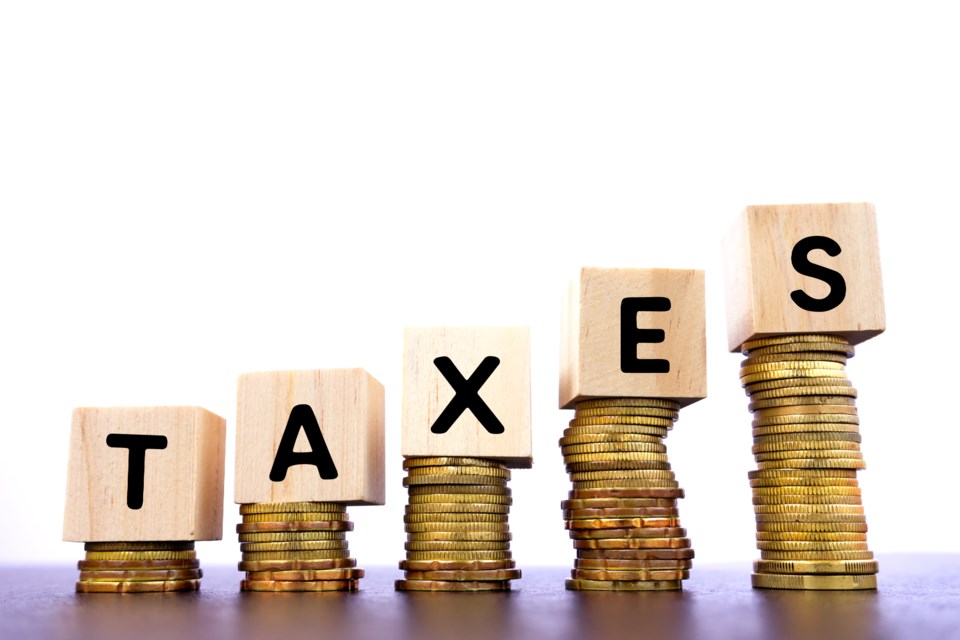It’s the most wonderful time of the year! Whistler budget season, that is.
If you’ve avoided the news to this point, here’s the big takeaway: the Resort Municipality of Whistler (RMOW) is proposing an 8.3-per-cent tax increase in 2023—the largest we’ve seen in years.
RMOW officials are well aware of how the community will react to this, judging from how they tried (unsuccessfully) to both spin and bury the real headline in their Nov. 29 press release.
“Whistler proposes tax increase half a per cent above inflation” the headline read. The actual tax increase wasn’t mentioned until the fourth paragraph, where it was sandwiched between an explanation that the large increase is necessary to maintain existing service levels, and reminders that Whistler’s 2022 residential municipal mill rate—the amount of tax payable per dollar of assessed property value—was the lowest in British Columbia in 2022, and that the municipality has had lower-than-average tax rate increases for the last decade.
That may be true, but does it mean anything to financially strained local taxpayers and business owners?
The press release also neglected to mention the RMOW’s proposed utility tax increases for 2023: three per cent for water, four per cent for solid waste, and five per cent for sewer fees.
The utility-fee bumps would amount to increases of $13, $14, and $15 respectively. An 8.3-per-cent tax increase will work out to about an extra $100 on a home assessed at $1 million; $387 for a home assessed at $4 million.
(Those living in Whistler Housing Authority units will likely see much lower increases, and as always, your individual tax bill will vary based on the value of your home and fees levied by other authorities).
That a government would try to spin, deflect, or lessen the blow of bad news is not exactly surprising—but it would still be nice if officials (of all stripes, not just at the RMOW) would just be straightforward with their information and respect the public’s intelligence. I’m not going to hold my breath for that particular Christmas miracle.
However the RMOW wants to frame it, the fact remains that Whistlerites are looking at an 8.3-per-cent tax increase in 2023.
If that doesn’t sit right with you, now is the time to speak up—not six months from now when your tax bill shows up asking for hundreds of dollars more than last year.
As the RMOW inferred in its carefully-worded, pre-budget press release, it should be noted that inflation is wreaking havoc on budgets big and small this year, so it would almost be more surprising if Whistler avoided the impacts entirely.
It’s also encouraging to read that staff are proposing six-per-cent less project work in 2023 and a review of staff compensation (including benchmarking against comparable communities) in light of inflation and the ongoing labour shortage.
“Our operations are pressured by supply chain delays and labour challenges, so we need to attract and retain talent,” Mayor Jack Crompton said in the release. “Our people are the ones who do the legwork to tap broader funding sources, advance critical infrastructure upgrades, meet budgets and deliver municipal services. It’s very important we remain competitive in this labour market.”
The 2023 budget counts more than 350 projects worth an estimated $38.3 million (about $8.6 million of which is carried over from 2022)—that’s down from $45.7 million in last year’s budget, and the $54.9 million budgeted for projects in 2020 (though that spend was inflated by a $10-million loan to the Whistler 2020 Development Corp for construction of affordable housing).
Outside of necessary investments in park and sewer infrastructure, this year’s project list is lacking in the big-ticket spends seen in previous budgets. So at first glance, at least, the project cuts pass the eye test.
But an 8.3-per-cent tax increase is tough to swallow any way you slice it.
Whistler’s budget guidelines will be back before council on Dec. 20, with first readings of the five-year financial plan bylaw scheduled for Jan. 10.
Head to whistler.ca/budget to review the budget materials for yourself, and be sure to submit your feedback to mayor and council in any way you can—I hear they like it when people show up in person at meetings to ask questions at the podium.




